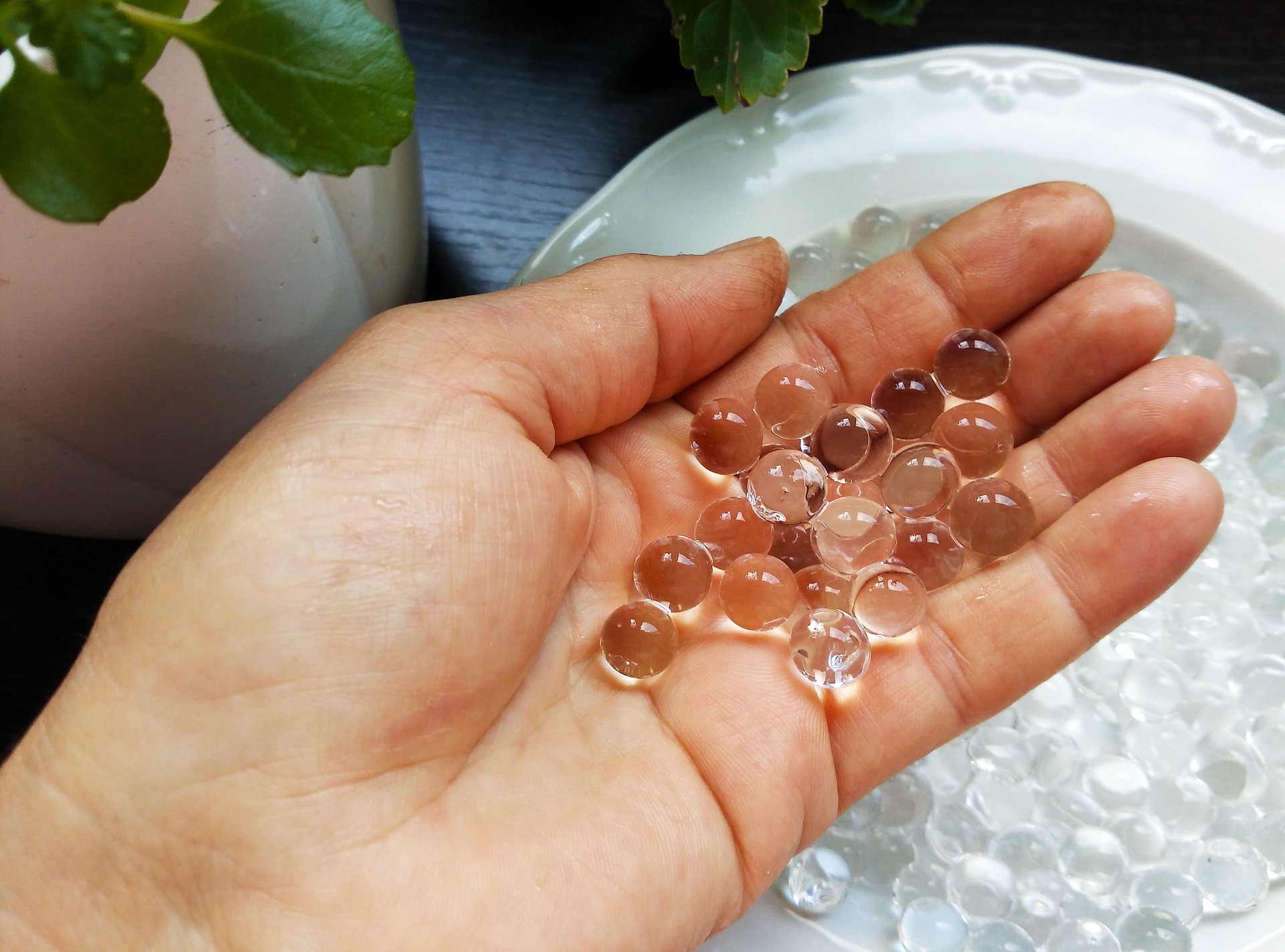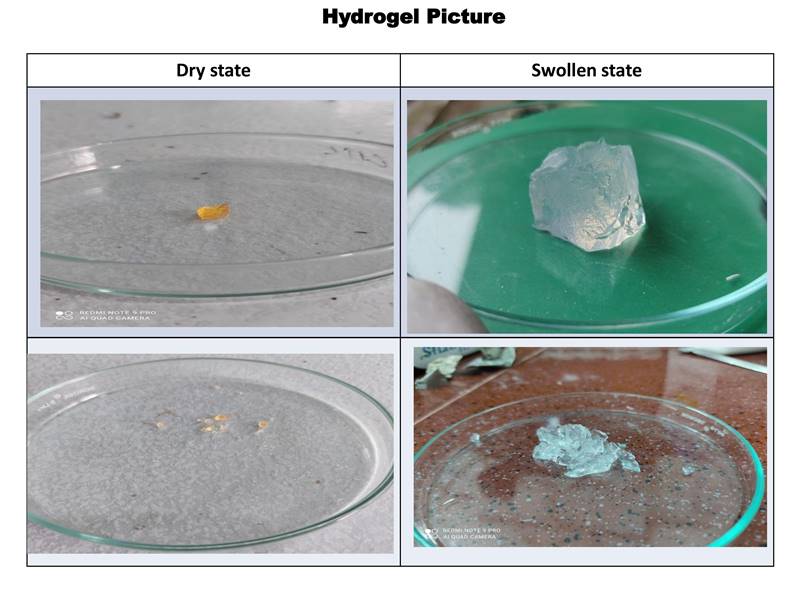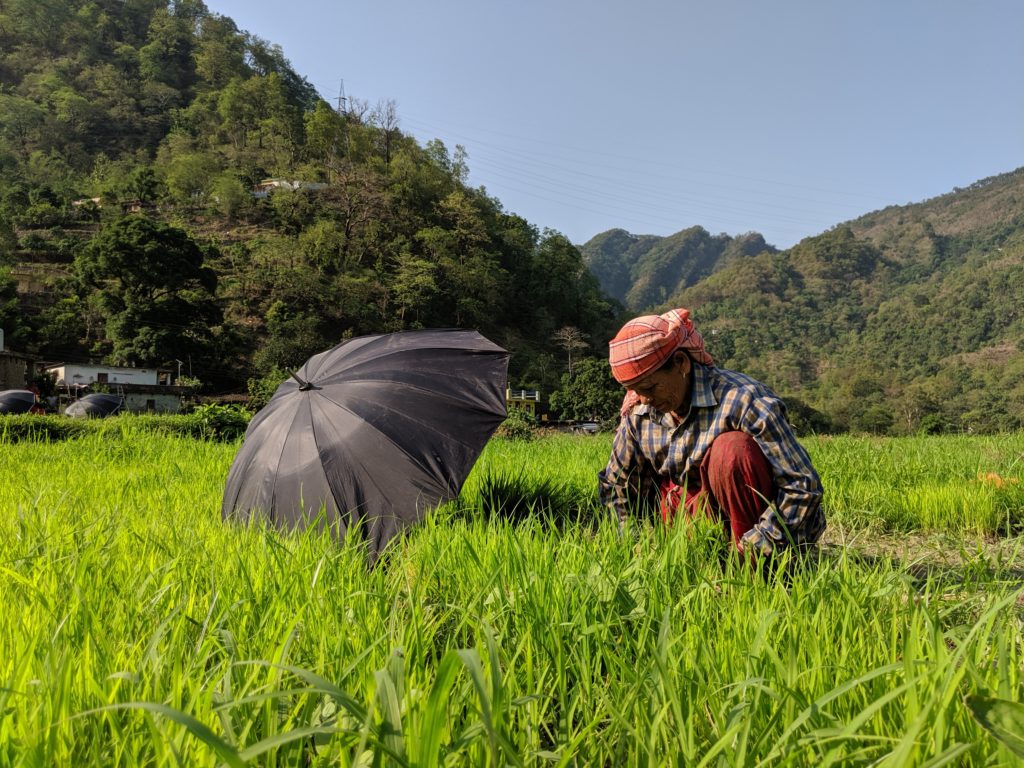A plant-based hydrogel to help farmers tackle water scarcity in the face of climate change
An eco-friendly hydrogel made from plant cellulose has been developed by scientists of Tripura University with support from the Ministry of Environment. The hydrogel that has the ability to absorb, hold and release water when required by the crops, hopes to help farmers mitigate the problem of water scarcity in agriculture.


An eco-friendly hydrogel made from plant cellulose has been developed by scientists of Tripura University. Pics: By arrangement
The United Nations’ IPCC (Intergovernmental Panel on Climate Change) latest report on climate change, released on August 9, warns of intensification of the water cycle leading to changes in the rainfall patterns. This is likely to directly impact farming in India as 51 per cent of farmers in the country practice rainfed agriculture.
In the face of increasing water shortage in several states, there have been sustained efforts by the agricultural scientist community to find ways and means of mitigating the problem of water scarcity.
One of the ways is the use of hydrogel in the fields which allows farmers to grow their produce using less water.
What is a hydrogel?
Hydrogels are in the form of crystals or granules that have the ability to trap water. When it rains, or when the land is irrigated, the granules/crystals hold the excess water and prevent it from evaporating. When there is shortage of water, the hydrogel gradually releases the water within, thus providing the plants moisture and preventing them from wilting.

A hydrogel that has been developed by scientists of Tripura University is made with plant-cellulose with support from the Ministry of Environment, Forest and Climate Change.
Also Read: Traditional polyhouses get a makeover with retractable roofs
Hydrogels are eco-friendly
“There is a lot of research on hydrogel, because shrinking water resources is a problem the whole world faces,” Sachin Bhaladhare, from the chemical and polymer engineering department of Tripura University, Agartala, told Gaon Connection. He, along with his team have worked on developing hydrogel, that is obtained entirely from plants making it environment friendly. The lab testing of the hydrogel is over, and the field testing of it is yet to be done.

“Because this hydrogel is obtained from the cellulose of plants, it is not just eco-friendly, but we will never run out of the raw material to make it. We wanted the raw material that is biodegradable and not harmful to the environment,” Bhaladhare pointed out.
Also Read: Portable polyhouse puts the smile back on faces of marginal farmers in the hills
The team has developed these plant-based hydrogels in the form of crystals that can be used easily in the fields. They have the property to retain water in them.
Field testing of hydrogels
Currently, the hydrogel is being tested in the lab where the team of scientists are observing its effect on plants. “We added hydrogel to one set of plants and see how it affects the growth and health of those plants. We also have another set of plants where no hydrogels have been used,” Bhaladhare said. They are very happy with the outcome of the lab tests so far, he added.
It was in 2019, that the Union ministry of environment, enabled a three-year research project on mitigating water shortage and scarcity under the aegis of the National Mission on Himalayan Studies (NMHS). The research was to focus on reducing wastage of water during irrigation, mitigating the impact of droughts and increasing the efficacy of fertilisers in farming. It is as part of this programme that the scientists from the Tripura University worked on hydrogels.
Also Read: Life dries up as a village on the bank of Narmada in Madhya Pradesh runs out of water
“We received funds from NMHS and we would have completed the research by now but for the pandemic,” Bhaladhare said. “We have developed the hydroel and even tested it on the soil, only the field trials are awaited,” he added.
In the face of climate change and changing rainfall patterns, with increased intense rainfall and more severe droughts, it is important that these new agri products reach from the labs to the farms at the earliest.
Read the story in Hindi.

